John P. Chesick Scholars Program forFirst-Generation/Low-Income Students
FLI Stories of Resilience
Joyce Bylander
Interim Dean of the College (2020-2021)
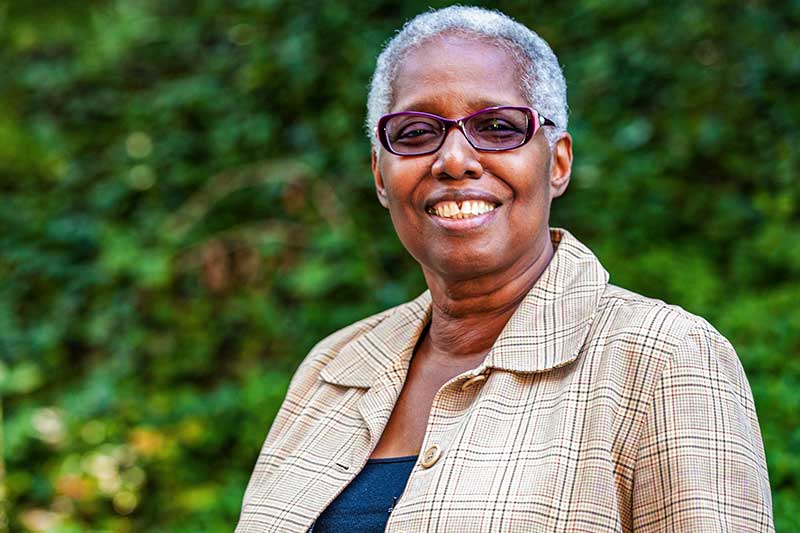
I was the sixth of seven children. There was a twenty-year difference in age between my oldest sister and my youngest sister. My older sisters grew up and went to high school in the fifties. When they went to high school there were fewer opportunities for women, in general, and black girls in particular. My older sisters were brilliant. Their teachers knew it, everyone knew it. They went to a good high school in a transitional community but they still had limited opportunities coming from a working-class family. My sisters were placed into “retail” and “clerical” tracks in high school. One sister went to work in retail after graduation and one went to work as a secretary for the Internal Revenue Service in Cleveland, Ohio, where I am originally from. My older sisters were number 1 and 3 in our family constellation. My number 4 brother who was younger went to college for a while but didn’t graduate. My next brother, number 5 in the family went to college but dropped out to play professional football in a new league that was formed in the 70’s. You may wonder what happened to number 2. That would be my oldest brother. He died in prison. We always thought he was the smartest of all of us.
That brings us to number 6-ME! I loved school, always did. I did well in school and excelled. My parents believed in education, pushed us and provided as many books and trips to museums (Tuesday was free day at all the museums in Cleveland) that they could. They wanted all of us to go as far as we could. They wanted us to go much farther than they had. My dad graduated from high school. My mom didn’t but went to night school when I was a kid because she too loved learning. She set a great example.
Well I did go to college. It wasn’t easy. We still didn’t have a lot of money. I worked my way through college and it took me six years. By the time I graduated, I was married. But my diploma from college has my maiden name on it because it belonged to my parents! They were the people who pushed me and helped me stay focused and succeed. They earned that degree with me.
My youngest sister, who was eight years younger than me also graduated from college. Every generation of my family after me has college graduates in every branch of our family tree. Being first gen doesn’t just change your life, it can change the trajectory of your whole family.
I am most proud to tell you that my two brilliant, older sisters went to college as adults and earned not just one degree but several. They had careers that spanned their lives and were also examples to all of us. All of their children and most of my other nieces and nephews went to undergraduate and graduate schools. Among my family now are educators, nurses, lawyers, and entrepreneurs. We all know that we owe our success to those two people, so long ago who believed in education and believed in us.
Hasibe Caballero-Gomez '21
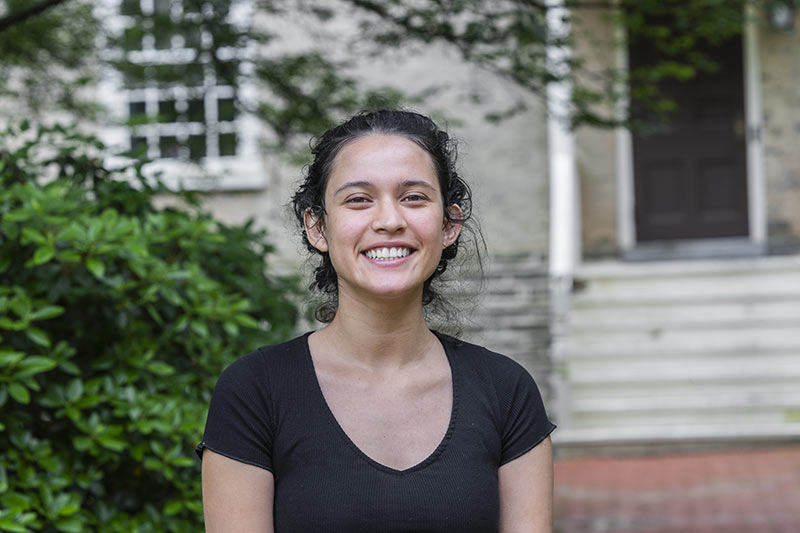
I think one of the strangely most beautiful experiences I’ve had at Haverford was working at the Coop cafe. And I realize that sounds weird, especially since working at the Coop Cafe was just a result of needing a job with enough hours to support myself, but I found a lot of comfort and community there. From having my work-mom Norma who invited me to Thanksgiving at her home when I couldn’t go to mine to playing bachata during clean-up at night shifts. The Coop became an informal space for FLI students at night where they could eat, grab a coffee, find friends, and sometimes manage to get some work done. At 12 when our shift would end, my friends were always the escorts driving me down to the apartments when it was cold. I always try to help first year students coming in, who need to complete work-study, by setting them up with a job at the Coop because it was always a job that helped me out so much. To incoming students I’d recommend being open and active in finding informal and formal spaces of community, because they really make the difference in feeling whole at Haverford. There are affinity groups and community houses structured around identity that are always worth visiting. But there’s also spaces at Haverford that we just build for ourselves, so don’t be afraid to build those or join them.
Frances Rose (Fran) Blase
Chemistry Professor
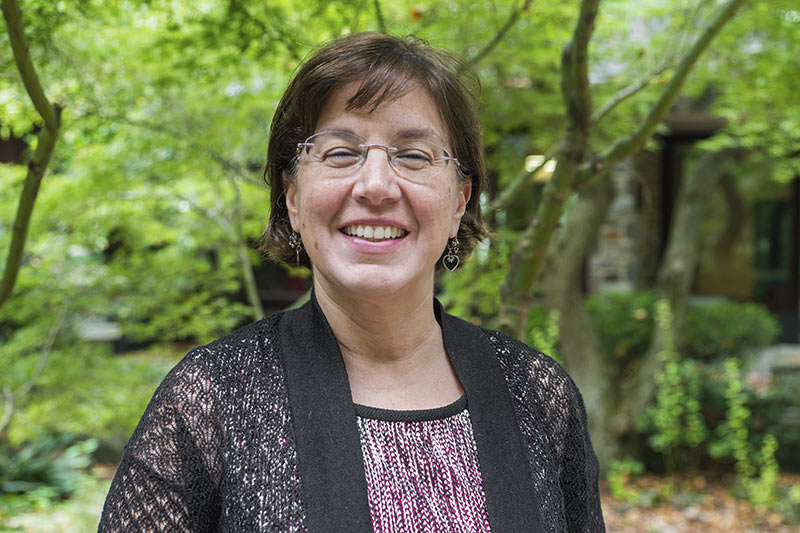
I was so excited to attend college–even though my parents, my grandparents and my older brother had never been to college, I was thrilled to start this new adventure and be the first in my family to earn a degree. I loved learning and was a top student in my high school (class valedictorian, just sayin’), so college would provide the opportunity to learn many new things, meet really smart people and expand my world. Although my first year of college was decades ago, I vividly remember going to the bookstore with my father to purchase all of my textbooks several weeks before classes started; I wanted to be ready for that very first day of college! But as the semester(s) unfolded, and I became more immersed in the college environment, my enthusiasm and spirit were often diminished and sometimes crushed. I frequently felt out of place, like I did not belong, as if I had traveled to another planet because this one was certainly so different from the world I had come from. My peers seemed much more knowledgeable, more confident, definitely more wealthy, and just overall more ‘together’ than I was.
I also resisted the idea to seek help from anyone. I had made it to college because I was smart and resilient—I did something no one in my family had done—and seeking help seemed antithetical to the core of my being and seemed to admit defeat. It took time, but eventually I found my way. I made good friends, many of whom were first generation college students like I was, and we supported each other. I learned that asking questions, being proactive, and talking with professors were all productive ways to learn. I now look back on my college days with some sadness about how naïve and clueless I was, but also with great fondness about the exciting classes I had taken, the brilliant professors I learned from, and the wonderful friends, who, decades later, are still my very dear friends.
You have to believe with every fiber of your being that you belong at college, and that this school belongs to you. You can and will succeed, and leave your mark. In the words of Mae Jemison, physician, engineer and the first African American woman astronaut, ‘You have the padding-10-left right to be involved. You have something important to contribute, and you have to take the risk to contribute it.’ This is your time and your padding-10-left right to be involved in college; take the risks, and seize the opportunities.
Junior Nguyen '22
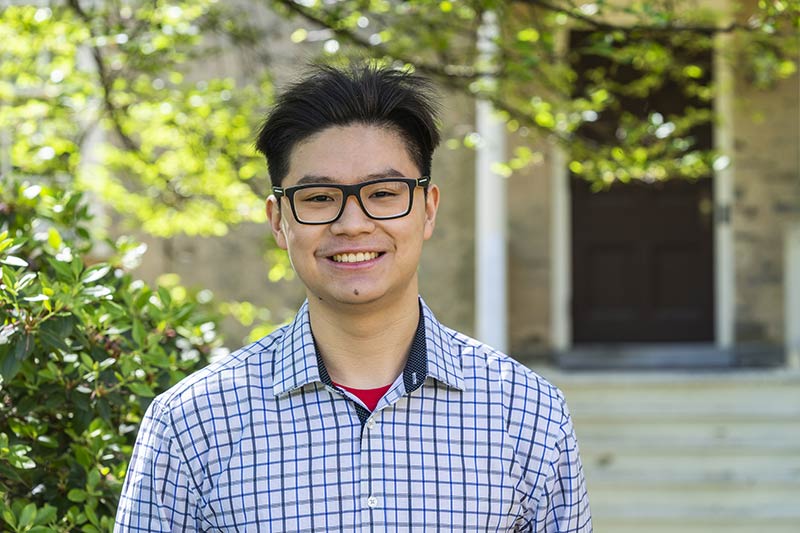
This year I experienced a great loss in my life that changed everything for me. It thrust me into the real world earlier than I had anticipated. There were new grounds to learn about but I never gave up because I had friends, mentors, and Haverford to help me every step of the way. This is why I advocate for all of my FLI peers to reach out for help whenever you are alone, stuck, or hopeless.
When I first took chemistry, I felt I wasn’t supposed to be at Haverford because I could not tell what was happening in lecture, homework, and in Peer Led Team Learning (PLTL). Everyday, I felt I was not good enough and this continued for the entirety of my first year but if there was one thing that remained steadfast, it was that I never gave up. I continued trudging through my self-doubts and imposter syndrome every single day because I had faith in the words of my advisor and friends who believed in me.
If you are someone like me, who is afraid of the future and filled with self doubt, then picture this line graph: X-axis being time, with Y-axis being “smartness”, and two lines of you and the average student at Haverford. The two lines start off the same, but then you start to dwindle and lag below the average student very early. However, as time goes on, you will overcome the average and go far above exponentially. FLI brilliance takes time to grow and glow, please don’t give up hope.
Ivan Ruiz '23
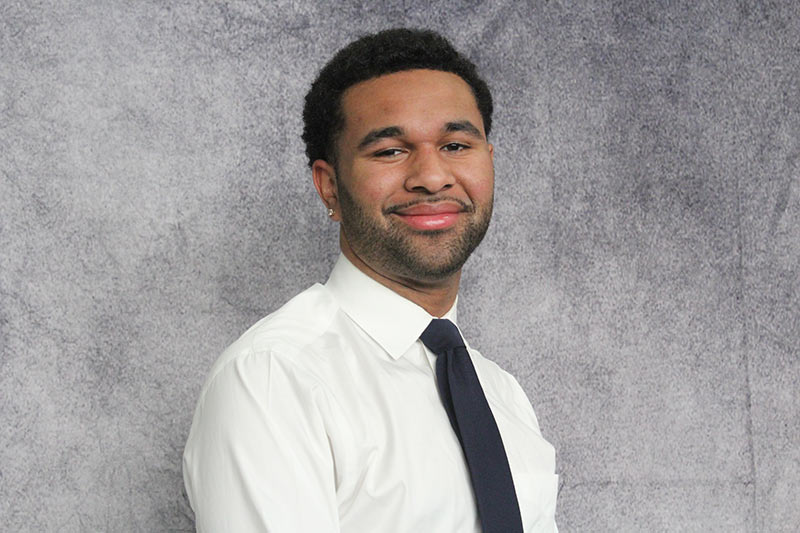
Coming into Haverford, I knew that the four years that lay ahead were possible only because of tremendous sacrifice from my parents. I decided that the way I would live these four years would be with the goal of making them feel like their investment of time, energy, and resources were worth it. Yet, I knew little to nothing about the college experience. And while my parents could support me, they definitely could not relate.
During Horizons, I found a tremendous group of support–from Student Resource People (SRPs), fellow first-years, and faculty. During a seminar one of our SRPs said, “The students who do best at Haverford are not the ones who were the smartest in high school, or the students who never leave the library. The students who do best are the ones who take advantage of all their resources.” And if one thing made my first year, it was that I reached out, and let Haverford help me.
I attended office hours, first-generation and/or low-income (FLI initiatives), free Counseling and Psychological Services (CAPS) sessions, tutoring, and Office of Academic Resources (OAR) workshops. I played club and intramural sports, used the GIAC equipment, and ate at dinners hosted by student-run clubs. As a FLI student, Haverford can be difficult to navigate–especially when it seems like this experience is elite and exclusive. It is important to remember and reassure yourself that this campus and its resources are yours just as much as they are anyone else’s. Do not ever let anyone–including yourself–convince you otherwise. You are at Haverford because you are unbelievably smart, a critical thinker, and a person of character. Walk through these halls as you walk through your kitchen at home. This institution is yours, and you contribute more to it than you will ever know. And if you need reminding, the rest of the FLI community is here to support you.